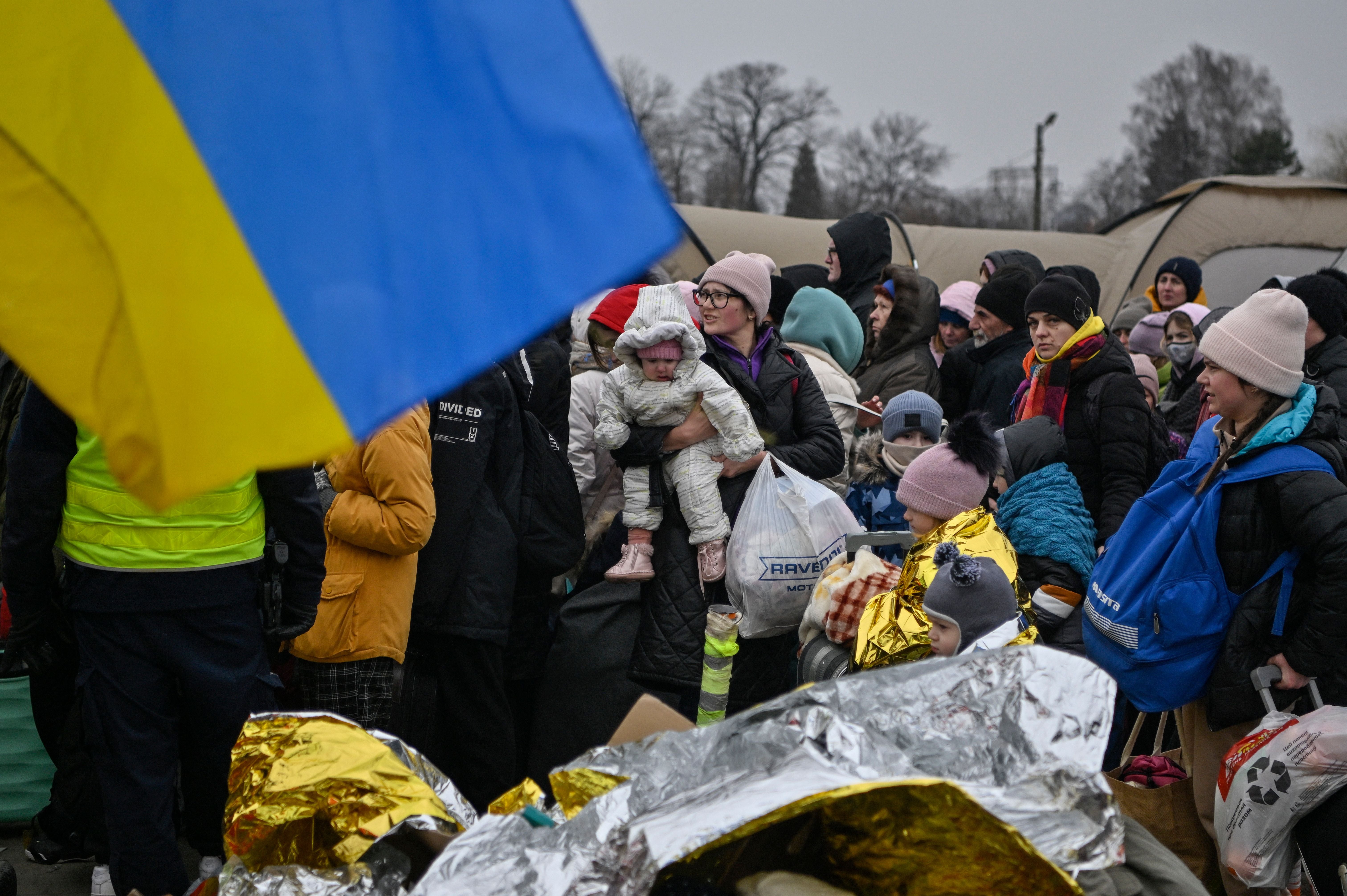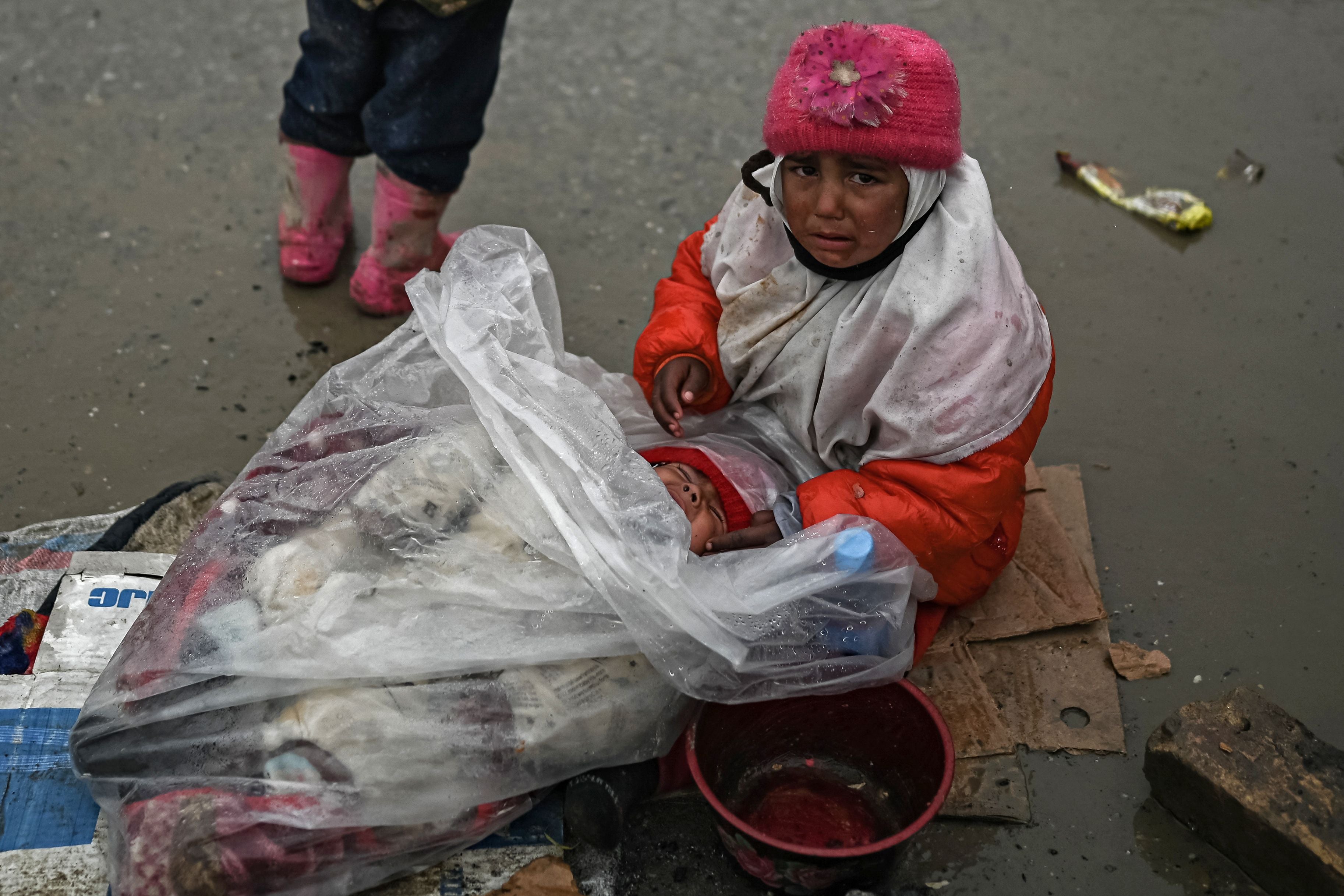I’ve met terrified Ukrainians who don’t know how they will survive the winter
While Ukraine has shone a spotlight on the hardships caused by below freezing temperatures, this crisis happens every year around the globe, writes Josie Naughton


Winter is predictable, but every year it blindsides organisations who are unprepared to support refugees through the coldest months.
Following Russia’s illegal invasion of Ukraine, the world’s attention turned to the millions of Ukrainians left behind to face the cold. Ongoing Russian missile strikes have destroyed half of the country’s power grid, leaving at least nine million Ukrainians without electricity to heat their homes.
With snow starting to fall and a severe shortage of coats, shelters and heating fuel, cases of pneumonia, frostbite and influenza are rising. A lack of forward planning by international organisations has intensified these issues, with many now lacking the essentials needed to make it through the winter.
The full reality of the situation was brought home to me last month when visiting Ukraine. There, I met citizens terrified about the months ahead, with some using every resource they have just to buy a stove or water heater. For these people, as for many others, aid cannot come soon enough.
Since co-founding the refugee charity Choose Love in 2015, we’ve been working with partners on the ground to mitigate this lack of support and move aid quickly as temperatures plummet. But as need deepens across Ukraine, as well as the wider world, we cannot meet sheer demand.
While Ukraine has shone a spotlight on winter hardships, this crisis happens every year around the globe, in part due to not enough being done in advance to meet the needs of displaced people. Since we started this work, we’ve been referring to time in “winters” – rather than years.
Each winter, families suffer avoidable tragedies due to a lack of timely funding. Since 2015, I’ve seen first-hand the catastrophic repercussions of these delays. One of the most haunting moments occurred a few years ago when visiting a camp in Lebanon. There I met a woman who showed me the grave of her daughter who had frozen to death that winter.
Similar challenges occur in Afghanistan. We see many conflict-afflicted families forced to brave -25C temperatures, with heavy snowfall making it even more difficult to seek urgent medical care. Over half of people in Afghanistan already live below the poverty line. Without the fast and effective delivery of shelters, heating or winter jackets, many will be forced to make impossible economic sacrifices just to stay warm.

What I’ve learned from our work is the importance of a flexible funding model. With large bureaucracies, funding often arrives too late to make a tangible difference. Working with partners on the ground allows us to deliver what’s most needed swiftly and respond to needs as they evolve. Protecting displaced people across the globe from winter weather does not necessarily involve evacuating millions of people. It depends on being ready and primed to deliver the essential items needed to survive the winter.
Each year, we work with our partners to prepare for the upcoming cold weather across the world. Every penny from the Choose Love pop-up shop, which runs until Christmas Eve, helps fund partner organisations on the ground to deliver essential items – from children’s winter coats in Ukraine to hot meals in Syria, to “bundles of warmth” that provide fuel in Lebanon. These short-term solutions might be simple, but they are the ones that can save lives.
At the Choose Love shop, I meet people moved by the enormous impact that the simplest items can have. The power of being able to provide enough coats, warm shelters, and heating before winter hits its peak cannot be underestimated.
But with temperatures plunging across the world, more support is urgently needed. International donors must come together to ensure that displaced people around the world never have to fear winter again. Only then can winter go back to being a mere change in season, instead of a life-threatening trial.
Josie Naughton is the CEO of Choose Love






Join our commenting forum
Join thought-provoking conversations, follow other Independent readers and see their replies
Comments